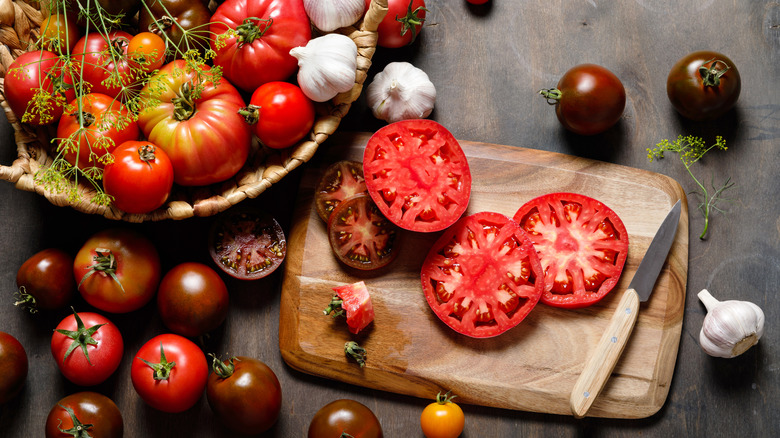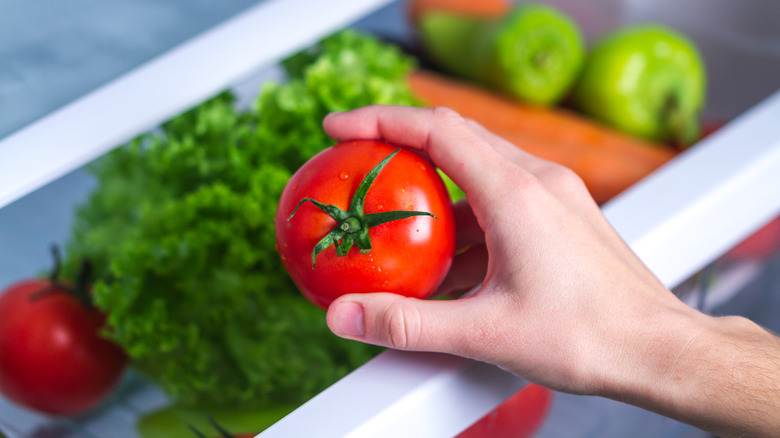Why It Probably Doesn't Matter If You Refrigerate Tomatoes
Whether tomato season is coming to a close or just commencing, it is always the right time to discuss how we store these delicate beauties. According to Food Network, tomatoes are all the rage from May to October, with a little wiggle room on either side of that timeframe depending on where you live. Although tomatoes were thought of as poisonous during the 18th century due to the fact that they were served on pewter plates (the pewter of yore contained lead, which, when combined with the acidity of the tomato, would seep into the food and cause lead poisoning), the masses ultimately figured out this was not the case. And now, as Aghires reports, the average American consumes 31 pounds of tomatoes per year.
But if you find you've picked more tomatoes than you can eat or bought more than you plan to use in a single day, you may be wondering what happens when you refrigerate tomatoes – and you aren't alone in your pondering. As Serious Eats' J. Kenji Lopez-Alt shares, this conversation has been ongoing for years with most people telling us not to put this fruit in the fridge. However, after analyzing some recent research on the subject, Lopez-Alt has concluded that it probably doesn't matter if you are refrigerating your tomatoes. Here's why.
Experts don't answer the real question
You've probably heard the repeated argument that tomatoes should not be placed in the refrigerator. The Washington Post reports that experts have explained the problem lies with what is known as "chilling" fruit after its been picked. They claim cooler temperatures hamper the fruit from ripening too quickly and can alter the taste of your tomatoes.
However, Serious Eats suggests it really isn't going to hurt your tomatoes if you put them in the fridge. Chef J. Kenji Lopez-Alt suggests that the research isn't answering the real question consumers need an answer to, which is, "How do I store my tomatoes?" Lopez-Alt goes on to explain that tomatoes can be stored in the refrigerator and this will give them a longer shelf life, but it will also change their taste and texture. However, the chef notes if you leave tomatoes out at room temperature, it could ripen and rot before you are ready to use it.
So, Lopez-Alt ran an experiment and found tomatoes that are stored in the fridge for a few days can "recover from any damage" by letting the tomato sit out until it hits room temperature. Bon Appétit also says it's okay to refrigerate tomatoes and notes that cutting them into small pieces will help them warm up quicker.

